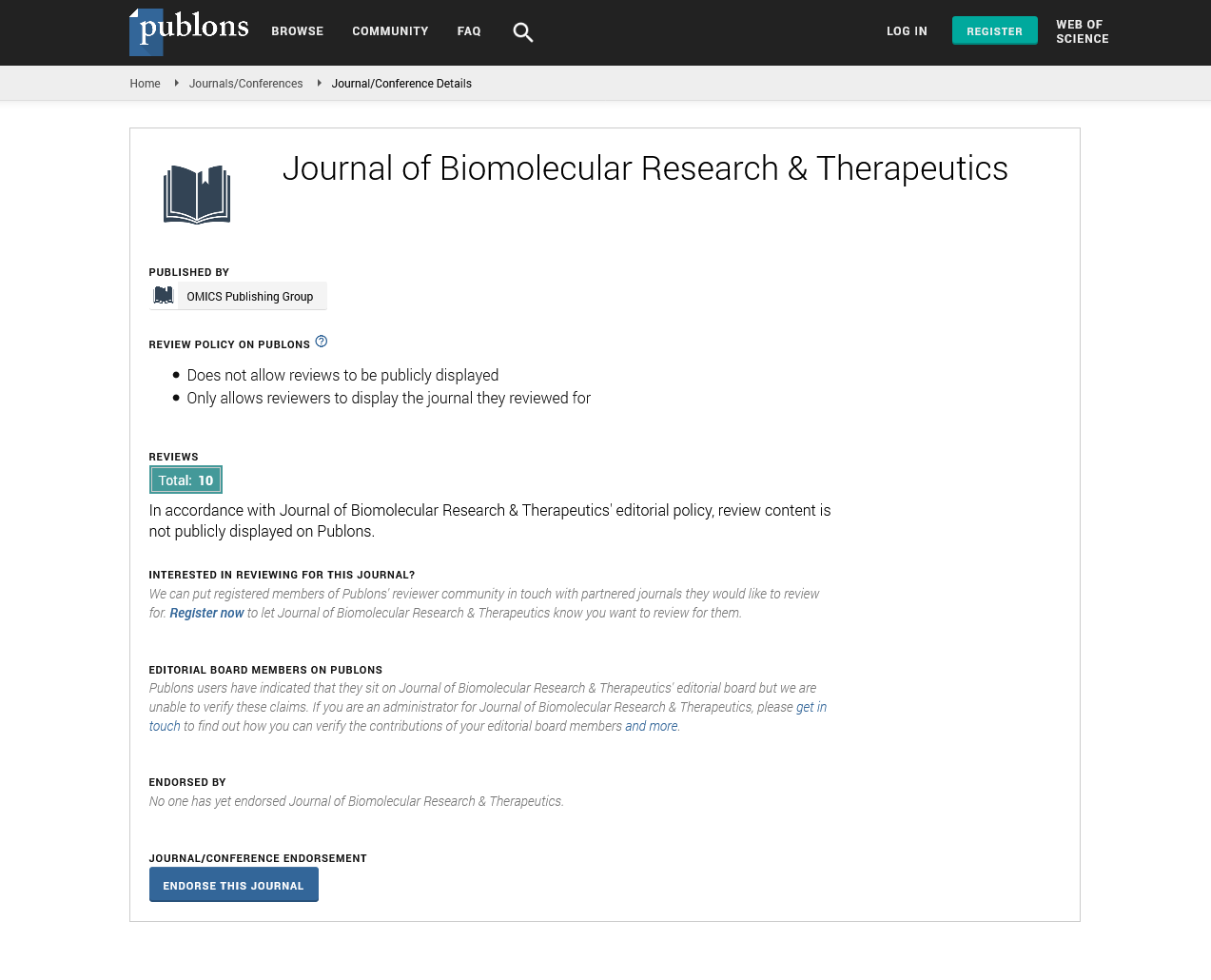Indexed In
- Open J Gate
- Genamics JournalSeek
- ResearchBible
- Electronic Journals Library
- RefSeek
- Hamdard University
- EBSCO A-Z
- OCLC- WorldCat
- SWB online catalog
- Virtual Library of Biology (vifabio)
- Publons
- Euro Pub
- Google Scholar
Useful Links
Share This Page
Journal Flyer

Open Access Journals
- Agri and Aquaculture
- Biochemistry
- Bioinformatics & Systems Biology
- Business & Management
- Chemistry
- Clinical Sciences
- Engineering
- Food & Nutrition
- General Science
- Genetics & Molecular Biology
- Immunology & Microbiology
- Medical Sciences
- Neuroscience & Psychology
- Nursing & Health Care
- Pharmaceutical Sciences
Opinion Article - (2022) Volume 11, Issue 10
Current Applications of Artificial Intelligence in Hepatocellular Carcinoma
Laura Antony*Received: 03-Oct-2022, Manuscript No. BOM-22-18618; Editor assigned: 06-Oct-2022, Pre QC No. BOM-22-18618(PQ); Reviewed: 20-Oct-2022, QC No. BOM-22-18618; Revised: 27-Oct-2022, Manuscript No. BOM-22-18618(R); Published: 04-Nov-2022, DOI: 10.35248/2167-7956.22.11.237
Description
The most prevalent primary liver cancer is Hepatocellular Carcinoma (HCC) which is also the third greatest cause of cancer-related death worldwide. In recent years Artificial Intelligence (AI) has become a crucial tool for improving clinical management of HCC, especially for diagnosis, prognosis and treatment response assessment. Both machine learning and deep learning, two distinct approaches to AI are founded on the idea of creating prediction algorithms from massive volumes of data or "big data." The advent of digital medicine has resulted in a rapidly growing body of regularly gathered health data that can be used to inform the creation of AI models. One of the most prevalent malignancies in the world, hepatocellular carcinoma poses a significant threat to the world's health care system. Alcohol and viral hepatitis are still significant risk factors for hepatocellular carcinoma but non-alcoholic fatty liver disease is quickly overtaking them as the leading cause. Hepatocellular carcinoma patients have access to a wide range of therapeutic options such as liver transplantation, surgical resection, percutaneous ablation, radiation as well as trans arterial and systemic medicines. As a result, clinical decision-making calls for a multidisciplinary team that changes the patient's specific treatment plan over time in light of the patient's tumour stage, liver function and performance status.
The therapy landscape for advanced hepatocellular carcinoma has changed with the approval of new first-line and second-line medications as well as the adoption of immune checkpoint inhibitor based therapies as standard of care. Hepatocellular carcinoma has increased in variety. As a result, the prognosis for hepatocellular cancer patients has improved. Predictive biomarkers are urgently required to guide therapy selection and the ideal medication sequencing has still to be determined. We provide an update on the causes, diagnosis, molecular classification and therapy for hepatocellular carcinoma. Numerous researches have built Artificial Intelligence (AI) models using features taken from magnetic resonance imaging, computed tomography imaging, and ultrasound imaging. Convolutional neural networks were utilized in the majority of these models. For HCC identification, characterisation of liver lesions and liver/tumor segmentation these technologies have demonstrated encouraging outcomes. To completely integrate AI models in clinical practice, a number of obstacles must be overcome. At least 80% of all primary liver cancers are Hepatocellular Carcinomas (HCC), which typically develop in conjunction with liver cirrhosis and are the third highest cause of cancer-related mortality globally. Its prevalence has increased over the previous few years, with the biggest incidences currently being recorded in Northern Africa, South-East Asia and Eastern Asia in light of this, populations at risk require on-going monitoring for the early discovery of HCC in order to access treatments meant to be curative, which can be particularly difficult in the chronic liver disease. Due to the high degree of individual variation among HCC patients it is essential to develop reliable prognostic scoring systems in order to enhance patient risk classification and increase the effectiveness of treatment plans. Here AI has a big potential. By examining tumor characteristics such morphological traits, which have a significant impact on patient prognosis, several algorithms have been created to assist in predicting response to a certain treatment. The use of AI algorithms in clinical settings is still quite uncommon due to a variety of difficulties despite the fact that it contains numerous potential benefits for the management of HCC and healthcare in general. The question of AI model regulation comes first. Artificial Intelligence (AI) products that are intended to help with disease diagnosis and treatment may qualify as medical devices.
Citation: Antony L (2022) Current Applications of Artificial Intelligence in Hepatocellular Carcinoma. J Biol Res Ther. 11:237.
Copyright: © 2022 Antony L. This is an open access article distributed under the terms of the Creative Commons Attribution License, which permits unrestricted use, distribution, and reproduction in any medium, provided the original author and source are credited.

